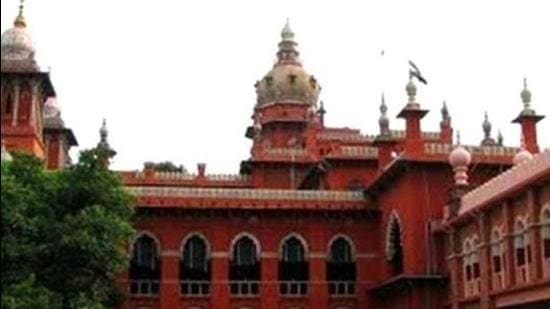When a judge learns — and teaches
With rare introspection, a Madras HC judge displays sensitivity to LGBTQIA issues. His order recognises that society changes incrementally. The sensitisation of the police, the judiciary, even medical professionals is essential
“I am the society, with all the misconceptions present. Now I’m working through it and engaging in the process of unlearning, so it is me who needs to convey this understanding to the rest of the society that stands where I once stood.” These are the words of Justice N. Anand Venkatesh of the Madras high court (HC), who underwent voluntary “psycho-education” on gender and sexuality related issues before passing interim orders on June 7 that directed various state and central agencies to ensure that persons belonging to the Lesbian, Gay, Bisexual, Transgender, Queer, Intersex, Asexual (LGBTQIA) communities do not face discrimination. The judge was hearing a case of a lesbian couple who moved court seeking protection from police action, based on complaints filed by the women’s parents, who felt ashamed by the sexual identities of their daughters. Not only did the court ask the police to close the case, it also issued a directive that police should close all such complaints if it finds that the person in question is of the LGBTQIA community in a consensual adult relationship.

Also Read | ‘Change must take place...’: Madras HC interim order on LGBTQIA community
The couple is neither the first nor will it be the last to move court seeking protection from families that misuse the law to harass queer persons. In a country where social norms trump the law and even heterosexual adults face immense violence for falling in love with a person of the “wrong” caste or faith, it is not hard to imagine how same-sex couples, particularly women, are doubly vulnerable, stigmatised on account of a barely legitimate love and subject to patriarchal control over their sexuality. Before Section 377 was read down by the Supreme Court in 2018, the colonial-era law that criminalised homosexuality was routinely weaponised to extort and threaten gay men and genders assigned male at birth. Other sections of the Indian Penal Code continue to be used for those assigned female gender at birth — usually, one partner is charged with kidnapping the other; parents file missing persons’ reports, prompting the police to conduct an investigation and bring the “charge” back, irrespective of age or consent.
Justice Venkatesh’s order recognises that society changes incrementally. The sensitisation of the police, the judiciary, even medical professionals is essential, and they need to unlearn socially acceptable patriarchal notions that adult women are charges of parents till such time as they are wed. It would behove institutional authorities to remember what the judge wrote, “Ignorance is no justification for normalising any form of discrimination.”
Continue reading with HT Premium Subscription




